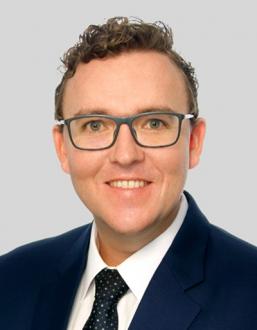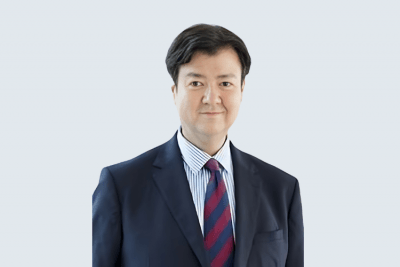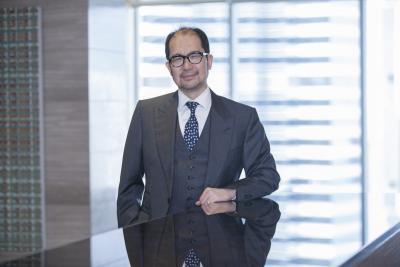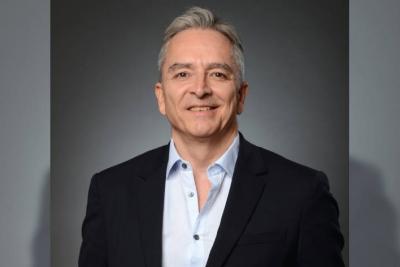Wealth Solutions & Wealth Planning
Henley & Partners Extols the Virtues of Alternative Resident and Citizenship Programmes

Dominic Volek of Henley & Partners
Dec 16, 2019
Dominic Volek, Managing Partner and Head of Southeast Asia at investment migration consultancy Henley & Partners, introduced delegates at the Hubbis Asian Wealth Solutions Forum to the appeal of global investment migration, as a taster for a more detailed Workshop later in the day presented by two of his senior colleagues. Volek explained why and how increasing numbers of Asia’s wealthy are taking up alternative citizenship and residence options around the globe, and briefly mentioned some of the major programmes that his firm believes are appropriate for Asia’s wealthy.
The investment migration activities of Henley & Partners (Henley) span the private client practice, which focuses on the needs of high net worth (HNW) and ultra-HNW clients who seek secondary residence or alternative citizenship through investment, as well as the government advisory practice, where Henley works with countries to design, implement and promote their individual investment migration programmes.
“We work with Hubbis at their wealth management forums all over this region,” he told delegates, “because we conduct a lot of business in these countries, and we work very closely with a lot of intermediaries including private banks, investment managers, family offices, and others in the wealth management community.”
Henley’s deep connections
He explained how Henley & Partners can help the wealthy clients of the private banks and wealth management advisories, adding value to their existing relationships. “We also equitably share the fees on these projects when we are introduced by advisers and intermediaries,” he reported. “We can therefore work harmoniously together, and as we only advise on residence and citizenship planning, we do not cover any of the areas of investments or other advice you work on with your clients. Accordingly, we can all work well for mutual benefit but ultimately to assist your clients.”
Volek explained that over 20 years ago, Henley pioneered the concept of residence and citizenship planning. At the time Henley was formed, this concept was hardly known of, but today it has become an integral part of wealth management and of the planning put in place by forward-thinking families.
“We are experts in residence and citizenship planning,” he reported. “We advise HNWIs and ultra-HNWIs on identifying and obtaining alternative citizenship and we help them to get permanent residence in other countries through investment.”
Henley also advises governments
The other element of Henley & Partners’ business is the government advisory practice, where the firm strategically advises governments on the design, set-up and implementation of their investment migration programmes.
“To date,” Volek stated, “we have helped governments raise more than USD8 billion in foreign direct investment. We are the pioneers and industry leaders in both the private client and government advisory sides of the business.”
The global trend towards offshore residence and citizenship is even more intense in Asia due to the phenomenal rise in the number of HNWIs and UHNWIs in the wider Asia Pacific region.
According to the Credit Suisse Global Wealth Report 2019, cited by Volek, Japan and China led the top three gainers for millionaires from 2018 to 2019, second only to the United States, while India was the seventh biggest gainer of millionaires. Collectively Japan, China and India contributed to an additional 379,000 millionaires from 2018 to 2019. Among the UHNW group, China is a clear second after the United States with 18,130 UHNWIs. And the trend is set to continue.
Volek observed that Asia’s HNWIs and the ultra-rich should seriously consider these options, and as they will need the best professional advice, they should consider Henley, as the reputed leader in this advisory business.
Henley’s worldwide footprint
He noted that today Henley has a worldwide staff of over 300 across 32 offices, and with more than 60 of those based in Asia, predominantly in the Singapore regional HQ, alongside other offices in Bangkok, Kuala Lumpur, Ho Chi Minh City, Manila and more recently Melbourne, Australia, which the firm opened in late 2018.
“Across the region, we help with many citizenship-by-investment (CBI) and residence-by-investment (RBI) applications,” he reported. “CBI is only offered by a handful of countries and that is actually the majority of our business, but we also help Asia’s HNWIs with RBI options overseas.”
RBI is the less complicated option, whereas CBI is, understandably, the more demanding and expensive option.
CBI programmes confer on the successful individual, and their families, the same rights as ordinary citizens of those countries; the solution is permanent and includes voting rights and passports with little to no physical presence required. The great advantage of CBI is that it bypasses the traditional route of an HNWI and the entire family relocating to another country in order to earn citizenship.
In fact, Volek noted that CBI is a relatively new concept, explaining that there are only about 10 countries currently with specific legislation in place that allows an individual - as long as they pass the due diligence and anti-money laundering checks – to invest and become a citizen of that country.
Volek noted that Henley’s role is to offer professional investment migration expertise, but the firm does not directly involve itself in any form of tax or legal advisory.
Reasons aplenty
Volek also told delegates that there are various reasons why private clients take up one or more investment migration options. There might be political or economic problems in their home country, or they simply wish to have a ‘Plan B’, to safeguard against such issues emerging later on.
The motivation might also be more lifestyle-driven, perhaps due to education plans for their children or grandchildren, or even maybe for future retirement plans. And as investment migration can also cater to the whole family and even includes parents and more distant family members, the solutions on offer are rather comprehensive.
Another core motivation for many people in Asia is the relative weakness of their passports from a travel freedom perspective. Singapore, Japan, Korea, as well as Australia and New Zealand are very high up the ranks of the annual global Henley Passport Index, which measures how many countries a passport holder can visit without a prior visa.
While countries such as Singapore and Malaysia both have an excellent passport from a travel perspective, other passports in the region, including those from several other ASEAN countries, are far more limited in terms of their visa-free travel potential.
Horses for courses
He explained that some countries, such as Indonesia for example, do not permit dual citizenship, so it is of course a much bigger decision for an Indonesian, for example, to take up CBI, because they would have to renounce their Indonesian citizenship if they obtained another one.
Volek also noted the typical private client is cash-rich but time-poor. He said most clients do not actually move to the new country, even if they obtained alternative citizenship, and that generally their motives are driven by additional freedom and flexibility.
He explained that the more traditional options have historically been the UK, the US and Canada and Australia, as well as New Zealand.
Some of the key programmes Henley & Partners currently recommends, for either RBI or CBI, include several countries in the Caribbean, and EU countries such as Greece and Portugal (for residence) and Malta and Cyprus (for citizenship), as well as the more recent CBI options, Montenegro, also in Europe but not currently in the EU, and the Republic of Moldova.
The Caribbean, he explained, is very much about getting a better travel document, with USD100,000 to USD200,000 as a donation to the government required, resulting within six months in a second or alternative citizenship and that passport offering visa-free access to the whole of the Schengen, Singapore, Hong Kong, the UK and other destinations.
In Europe, he noted that the top three CBI destinations are Austria, Malta and Cyprus. “They offer outstanding travel documents but the real attraction there particularly for UHNWIs is that they are members of the European Union,” he explained, “so not only are you getting an insurance policy and a high quality passport, but you and your family are getting settlement rights throughout the European Union, in other words 28 countries, or possibly 27, if Brexit goes ahead.”
Highly active clients
While most of Henley’s clients obtain RBI or CBI and then are satisfied, some of their other clients are more active. Volek offered the audience two interesting examples of such consecutive investment migration activity.
The first is an American citizen who initially acquired CBI in St. Kitts and Nevis. He renounced his US citizenship, and as a St. Kitts and Nevis citizen, he went on to apply for the Singapore Global Investor Programme, as he runs a business there. After two years as a permanent resident, he applied for Singapore citizenship, and got it, at which point he renounced his St. Kitts and Nevis citizenship. He subsequently became a resident in Hong Kong but now, due to the unrest there, is looking at alternative residence options in Europe.
The second interesting case was an Indian family that took up the Singapore GIP Family Office option. “They moved to Singapore, whilst also applying for the Malta Individual Investors Program,” Volek reported. “Once they were approved, they renounced their Indian citizenship, and actually have now relocated to the UK, while it is still an EU member country. Because of the uncertainty around Brexit, they have also done the UK Tier 1 Investor Visa program, and they have two children that are EU citizens through a Malta passport. One is now working in Germany without having to worry about work permits, while the other is studying for free in Sweden.”
His final point was that Henley & Partners is an advisory firm with expertise in investment migration, but it is not a tax advisory firm, that role must be sought out from other experts who can work hand in hand with the clients and in a complementary manner with Henley & Partners. “But of course, we do have more than 30 offices around the world, we do have in-house legal counsel and real estate consultants and we can help your clients from A to Z in order to achieve their investment migration objectives.”

Group Head of Private Clients and Member of the Executive Committee at Henley & Partners
More from Dominic Volek, Henley & Partners
Wealth Solutions & Wealth Planning
Preserving Intergenerational Wealth: Views from Investment Migration Expert Dominic Volek
Wealth Solutions & Wealth Planning
Investment Migration and Building Optionality in a Complex and Challenging World
Wealth Solutions & Wealth Planning
Protect Your Wealth via Residence by Investment in Investor Friendly Jurisdictions
Wealth Solutions & Wealth Planning
Henley & Partners’ Group Head of Private Clients Surveys the Current World of Investment Migration
Latest Articles






